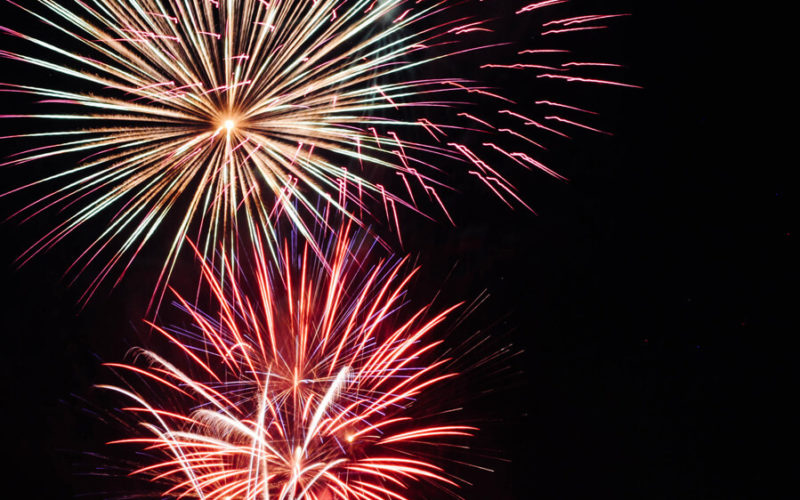Fireworks can be fun, but safety is key
There are more fires each Fourth of July than any other day of the year. On average, fireworks start 18,500 fires and cause $43 million in property damage annually. These are frightening numbers in Colorado, a state with a high risk of wildfires and where, right now, the Durango fire is currently raging, consuming over 4,000 acres.
According to the Consumer Product Safety Commission’s latest report, in 2016 fireworks caused at least four deaths and were involved in 11,100 US emergency room visits. This is one of the reasons why, in some parts of Colorado, fireworks are banned outright—on Indepence Day or at any other time.
Colorado officials urge residents to attend professionally-sponsored fireworks shows, rather than trying to stage their own. (Check out our list for an option near you.)
Any firework that explodes or leaves the ground is illegal throughout Colorado.
However, if you insist on setting off your own fireworks, there are some laws and some safety tips you should be aware of.
Colorado Firework Laws & Penalties
First, check with your local fire department or mayor’s office, because in some areas—such as Denver, Boulder, Fort Collins, Littleton and Lakewood—fireworks are completely illegal. Other areas allow fireworks only for a few weeks out of the year (usually around Independence Day).Throughout the state, it’s illegal to set off fireworks within city limits and in public parks. This news story has detailed information about restrictions and permissions in specific parts of the state.
Any firework that explodes or leaves the ground is illegal throughout Colorado. This means no bottle-rockets, Roman candles, mortars, M-80’s, M-100’s, helicopters or cherry bombs. Permissible fireworks (in areas that allow them) include ground spinners, smoke bombs, sparklers, and fountains.
It’s illegal to buy or use fireworks unsupervised if you’re under 16 or for anyone to transport fireworks into Colorado from another state. And penalties for rule-breakers are steep. You could end up with a fine of $999 – $2,750 (especially if you start a fire), an arson charge, and six months to a year in jail.
Still want to use personal fireworks this summer? A few key practices can help keep both you and the environment safe.
Firework Safety Tips
- Always read the directions, only use fireworks outdoors, and never use any sort of gas or accelerant to ignite a firework.
- Never have any part of your body in the direct path of a firework, never lean directly over a device to light it, and back up as soon as you get the fuse lit.
- Never point or throw fireworks at anyone.
- Have a hose or bucket of water nearby to douse any sparks or remnants of a used firework.
- Never attempt to re-light or “fix” a dud, and never dismantle fireworks. If a firework looks damaged or broken, don’t light it.
- Never carry fireworks in your pocket, and don’t wear loose clothes around fireworks. Wool and nylon are non-flammable fabrics, so if possible, wear one of these. Untreated cotton or linen, cotton-poly blends, rayon and hemp all burn easily and should be avoided. Work gloves are also a great idea, because they reduce burns and traumatic injury to hands.
- Clear the area of dry vegetation, such as dead leaves, branches and dead grass. Don’t use fireworks near bushes or trees.
- Always supervise children with fireworks. Remember, even sparklers can cause injuries to eyes and hands!
Make sure your family is protected in the event of a fire. Talk to an agent today about adding fire coverage to your homeowner or renters insurance.

